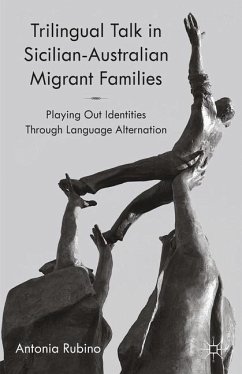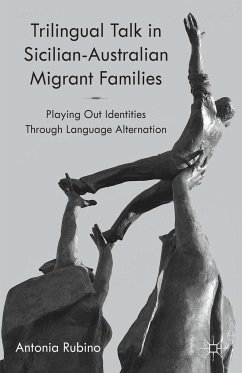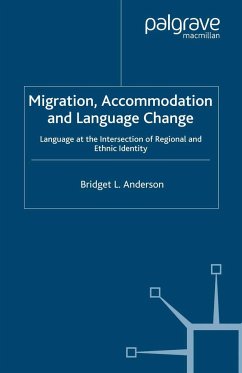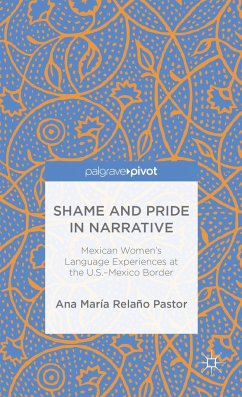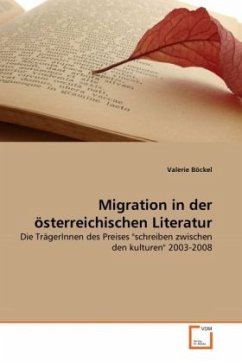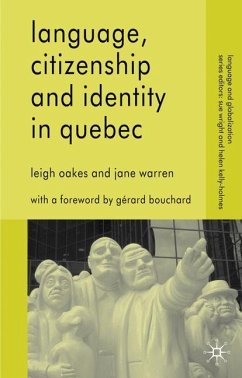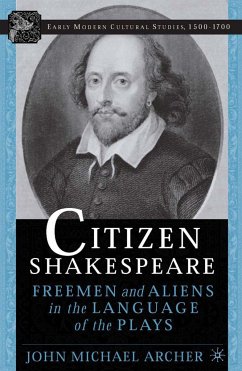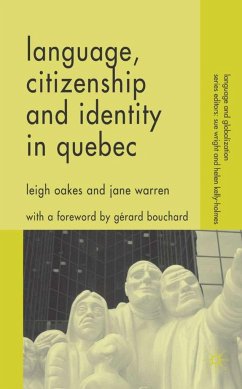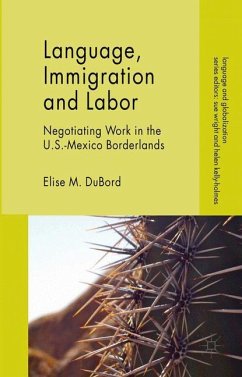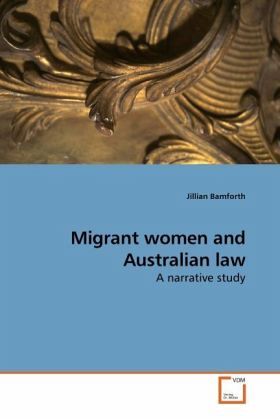
Migrant women and Australian law
A narrative study
Versandkostenfrei!
Versandfertig in 6-10 Tagen
52,99 €
inkl. MwSt.

PAYBACK Punkte
26 °P sammeln!
The work of critical legal feminists has drawn attention to the ways in which women's experiences are represented in law. It is argued that legal narratives erase significant aspects of these experiences, with the result that legal outcomes are compromised and the women's stories are substantially unheard. The research in this study uses a layered narrative enquiry, influenced by critical race theory, to develop these insights. It compares the narratives told by migrant women of their legal experiences with accounts of the same event provided by welfare and legal professionals. The analysis re...
The work of critical legal feminists has drawn attention to the ways in which women's experiences are represented in law. It is argued that legal narratives erase significant aspects of these experiences, with the result that legal outcomes are compromised and the women's stories are substantially unheard. The research in this study uses a layered narrative enquiry, influenced by critical race theory, to develop these insights. It compares the narratives told by migrant women of their legal experiences with accounts of the same event provided by welfare and legal professionals. The analysis reveals the means by which institutional narratives filter their clients' experiences, together with the result of this filtration: the theme of race and gender discrimination in the women's stories is invisible in the professionals' accounts. The effect of this omission is a limited understanding of discrimination and of its negative, embodied results. This research will interest human rights and equal opportunity organizations, welfare and legal professionals and those in the field of narrative studies, critical legal feminism and of critical race and whiteness studies.



